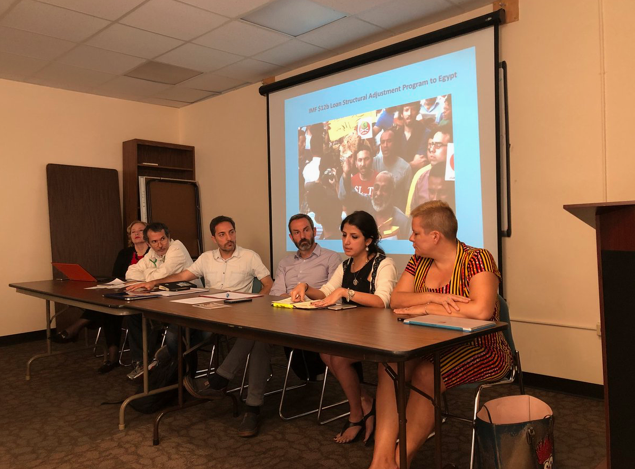July 24, 2018
 From July 9th-19th, CESR attended the High Level Political Forum on Sustainable Development (HLPF)—the UN’s annual assembly for reviewing progress towards the Sustainable Development Goals (SDGs) — dedicating its efforts to revitalizing recognition that the SDGs require urgent and concrete action to remedy inequalities, with rights-based fiscal policies a key tool in that endeavor.
From July 9th-19th, CESR attended the High Level Political Forum on Sustainable Development (HLPF)—the UN’s annual assembly for reviewing progress towards the Sustainable Development Goals (SDGs) — dedicating its efforts to revitalizing recognition that the SDGs require urgent and concrete action to remedy inequalities, with rights-based fiscal policies a key tool in that endeavor.The theme of this year’s HLPF, “Transformation towards sustainable and resilient societies,” implied that large-scale, much-needed change is already underway. Yet Global South countries in particular are seeing their efforts to highlight systemic obstacles at the global level—as well as push for global governance reform—consistently blocked and undermined. Civil society actors in both low- and high-income countries aren’t seeing much “transformation” on the ground; instead, there is more business-as-usual in most contexts.
CESR’s advocacy at the HLPF drew on its extensive national-level work in several of the countries presenting “voluntary national reviews” (VNRs) this year, intending to raise awareness of common policies and practices that are impeding global and national SDG progress. Reacting to widespread observations that last year’s VNRs had often seemed more like promotional tourist-board presentations rather than rigorous reviews of economic, social and environmental progress, CESR inaugurated a provocative “postcard” campaign. Drawing from our factsheets and other work with national partners, the cards vividly illustrated some of the core obstacles to meeting the SDGs, using examples from Spain (austerity), Egypt (poor metrics), Colombia (fiscal injustice) and Switzerland (tax abuse).
We used the opportunity of the HLPF and the VNRs to highlight our in-depth work in these countries as it speaks to larger global trends—for example the “lost decade” for human rights due to the damaging impacts of austerity. CESR also hosted a side-event during the HLPF examining these impacts and highlighting the profound incompatibility of austerity with the SDGs. Speakers testified powerfully to the damage wrought by “fiscal consolidation” in Spain, across Europe, in Egypt, and Brazil—and provided insights on how to challenge this trend. As CESR’s Executive Director Ignacio Saiz (who chaired the event) articulated, “austerity is global, unjust and unnecessary—and it is also ideological and systemic.”
The HLPF was also an opportunity to draw attention to common deficiencies in SDG monitoring, which obscure growing inequality and injustice, and strategize about people-centered alternatives. While the Egyptian government presented its extremely selective VNR (available to watch here at 1:40), CESR raised awareness of the Egypt Social Progress Indicators (ESPI), a collaborative, more holistic tool for monitoring sustainable development progress through a human rights lens.
CESR also continued to bring attention to the “spillover effects” of rich countries, such as Switzerland, whose financial secrecy and corporate tax policies prevent other countries from raising the resources necessary to fund sustainable development. CESR’s Kate Donald delivered the collaboratively-drafted civil society response to Switzerland’s VNR presentation, challenging the government on these issues, which undermine their firmly-stated commitment to global sustainable development.
Finally, CESR and partners launched the joint civil society report Spotlight on Sustainable Development 2018—whose theme this year is “Exploring new policy pathways.” CESR is part of the core team that writes, edits and publishes the report, which includes perspectives from around the globe on each Goal, and issues that cut across the broader Agenda. This year, CESR's Kate Donald, who co-authored a chapter focusing on the devastating impact of extreme wealth inequality and corporate concentration on the full range of SDGs, also presented at the event. Look out for Kate’s reflections on the HLPF on the CESR blog later this week.